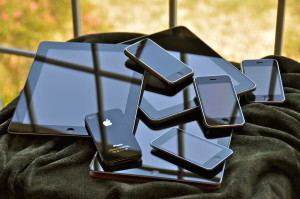The increase of wifi spots across New York City, along with a wide spectrum of global, cosmopolitan cities have all been participating in a digital connectedness as a means for locals, tourists and passerbyers alike to all stay interactive on their devices. While this was primarily initiated to further connectedness on social media platforms, to promote engagement via text messaging and internet browsing, both Olson and Roder of Horizon’s TrendSights have concluded that becoming a “smart city” may not necessarily spark an overall increase in user engagement.
With this in mind, Horizon’s TrendSights has concluded that there is an increase of consumers who have essentially opted to not connect to wifi kiosks or hotspots in order to maintain face to face interaction. In short, the intent on becoming more connected through the implementation of everything wifi has resulted to a response that has produced a quest to for more personal, undistracted personal space from their devices.
Although both Olson and Roder have noticed this trend gradually appearing in consumer and social behavior, they agree that the increased effort on the consumer’s behalf to distance themselves from their devices has been far more noticeable in the past six months. Olson comments on this trend by stating that “Most people have had smartphones for awhile now, but I think people had to kind of live with them for a while and internalize all the effects the phones have on one’s life before they felt this itch to return to a more disconnected life.”
As this concept of distance from devices has augmented within the last year or so, consumers have been responding in different forms in order to counteract what they feel is the lack of meaningful social engagement.
More concretely, one interesting that has been making a strong statement as an overall response to the digital connectedness as a whole, is the fad of adult sleep-away camps that mandate an environment which calls for no devices or anything digitally related.
An adult sleepaway camp called “Camp Grounded,” has locations from New York to Northern California and offers features like typewriters, stargazing, sweat lodges and gourmet cuisine in the hopes of visitors to take a step back from their busy, digitally occupying lives.
This essentially highlights how adamantly digital consumers of all ages are actively attempting to create more authentic, face to face human interaction in their daily lives. To read more about how consumers are disconnecting from the digital space click on this link.
